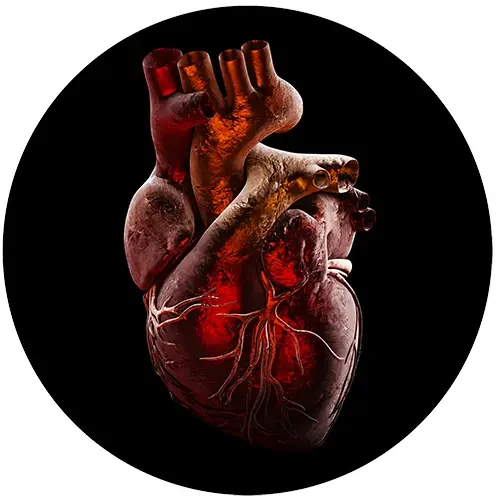Blood Thinners
Overview: Blood thinners (anticoagulants) make it harder for blood to clot. They are used in HCM mainly to reduce the danger of stroke among those with atrial fibrillation, atrial flutter, or artificial valves.
Anticoagulants make it harder for blood to clot. They prevent new clots from forming or existing ones from increasing in size.
Anticoagulants are often prescribed for those with a history of certain conditions to reduce the risk of stroke. This includes atrial fibrillation, atrial flutter, and having artificial heart valves.
To be clear, those with artificial valves need to take anticoagulants for the rest of their lives. This is also true for those who have a history of atrial fibrillation or flutter. It surprises many, but the risk of stroke is still considerable in patients who have had afib or flutter in the past.
Clotting involves a sequence (cascade) of chemical reactions. This means that there are many potential ways of limiting clotting. There are currently four major groups of anticoagulants:
- Coumadin (warfarin) and similar drugs. These are the most widely used anticoagulants and much is known about them. They act by inhibiting Vitamin K, which is necessary for clotting. An antidote (used if major bleeding occurs) thus is Vitamin K. Warfarin requires monitoring with a blood test, approximately on a monthly basis. This monitoring can lead to adjustments, either in drug dosage or in diet (eat more or fewer leafy green vegetables, which contain Vitamin K). Home monitoring may be available, or it may be done in a clinic.
- Direct factor Xa inhibitors. These are fairly new drugs, including Xarelto (rivaroxaban) and Eliquis (apixaban). Drugs in this category all have names ending in "xaban." As the name suggests, they inhibit an enzyme called factor X. Initially these drugs had no antidote, but in 2018 an antidote was released to the market, helping to alleviate some safety concerns. One advantage of these drugs is that no testing is necessary. Because they are new to the market, they are considerably more expensive than Coumadin.
- Heparin. This drug is usually used to prevent clotting during surgery. It acts by promoting the activity of proteins in the body called antithrombins.
- Direct thrombin inhibitors. There is only one oral prescription drug in this category, Pradaxa (dabigatran etexilate).
Safety
Anticoagulants are considered generally safe when they are used exactly as intended. Some common side effects of anticoagulants are bleeding, bruising, heartburn, nausea, loss of appetite, irritation and pain around the injection site for injectable anticoagulants. Serious side effects include major fatal bleeding and hemorrhage, necrosis of the skin, and spinal/epidural hematomas. Warfarin also interacts with certain foods and common medications. Regular blood monitoring is necessary because there is a small difference between an effective dose and a toxic dose. It is important to talk to your doctor before you stop taking blood thinners.
Antiplatelet drugs (including clopidogrel (Plavix) and aspirin) also reduce clotting. They may be used for some situations in which the patient has a sufficiently low risk of stroke. However, for those with artificial valves or a history of atrial fibrillation or flutter, anticoagulants are generally recommended.
HCMA 6/2021










